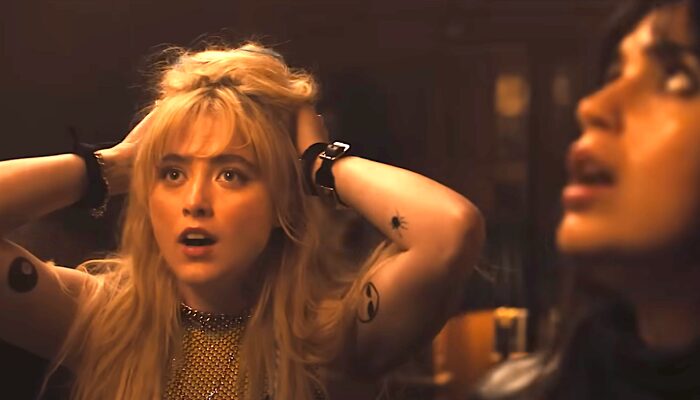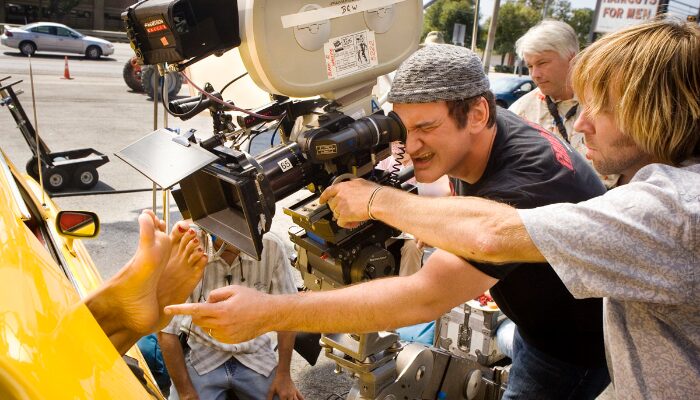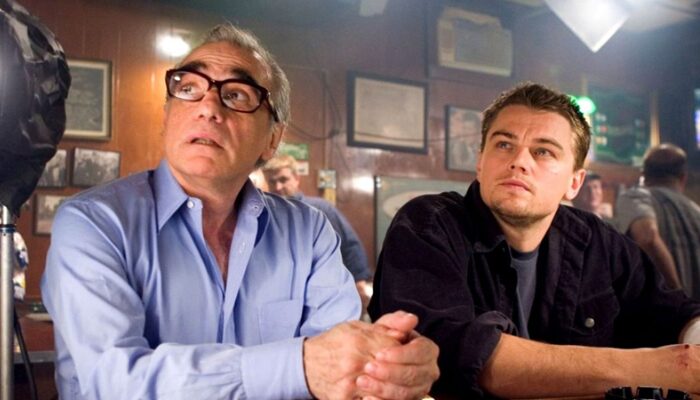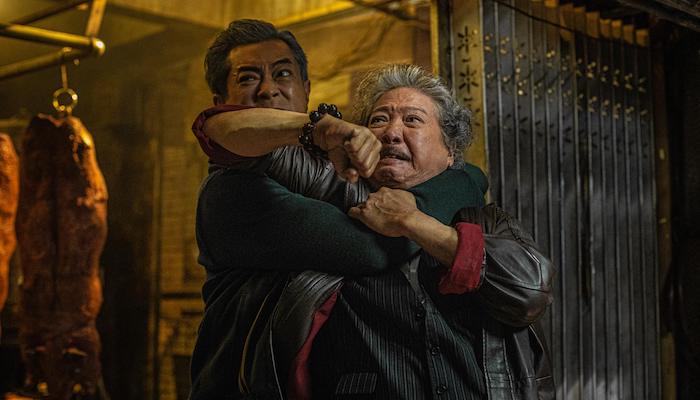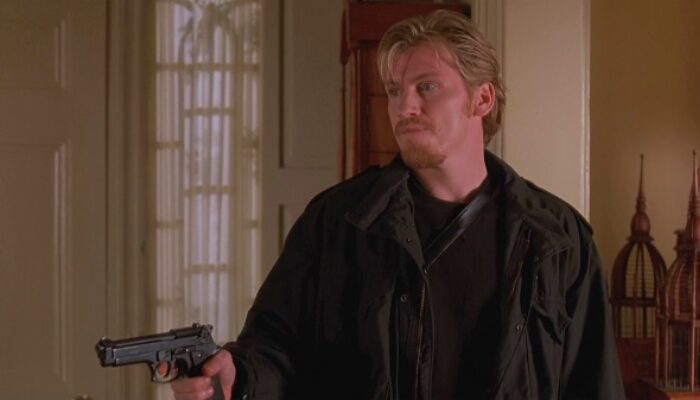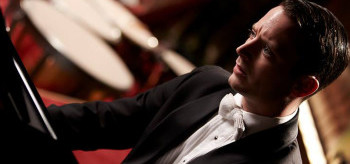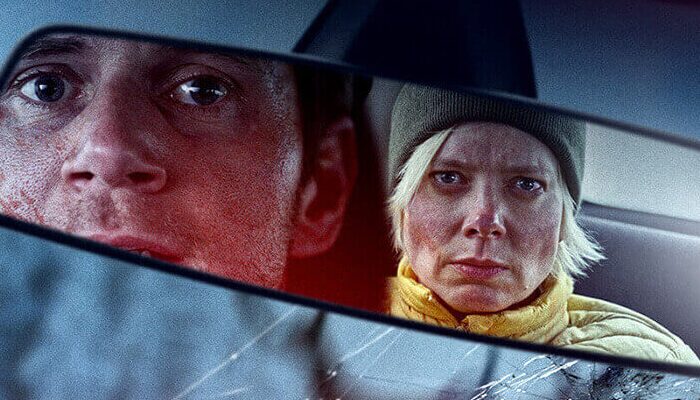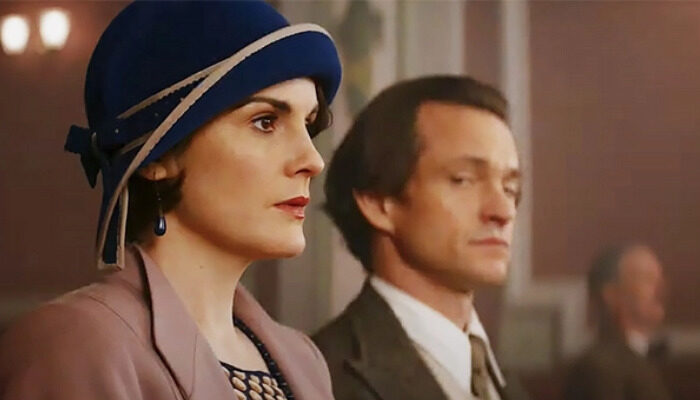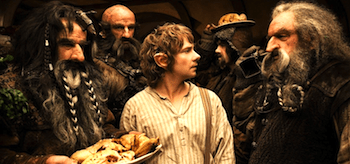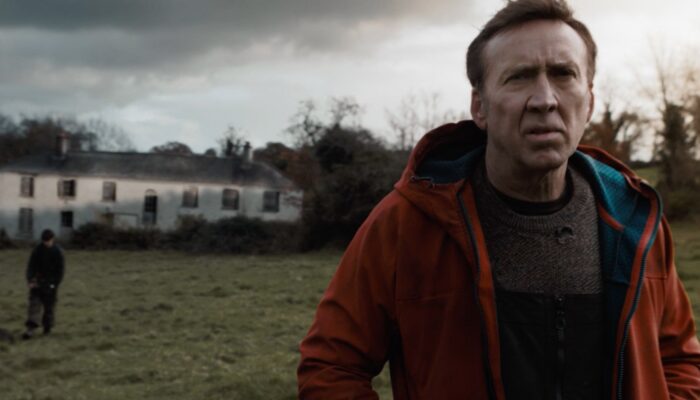Film Review: GRAND PIANO (2014): Merrie Melodies of Menace
Grand Piano (2014) Film Review, a movie directed by Eugenio Mira and starring Elijah Wood, John Cusack, Kerry Bishé, Alex Winter, Don McManus, Tamsin Egerton, and Allen Leech.
Tom Selznick (Elijah Wood) was one of only two pianists capable of playing a near impossible piece (to play). The other was the composer of the piece, who also happened to be Tom’s mentor. After failing to execute the composition, in concert, Tom went into reclusion. After five years, in tribute to his his now deceased mentor, Tom was set to make another live performance attempt at the nearly impossible piece. Unfortunately for Tom, the second time around was to be much more difficult than the first.
Complicating matters was press coverage. Tom had become infamous as a genius recluse, out to overcome severe stage freight, and redeem the singular episode responsible for his condition. Tom’s problem wasn’t stage freight. Tom, like a lot of gifted individuals, was a perfectionist, and perfectionists don’t take failure very well. The press narrative, and the excitement it generated among devotees, added much more pressure to the affair than Tom was prepared for.
Complicating matters further was his wife, Emma (Kerry Bishé), an international sensation. Anticipation of her presence had become a driving force behind the media spotlight on his performance. Tom had become famous by association, the performance now set to determine whether he would reclaim his own fame, or live deeper within Emma’s shadow.
Well, as if things had not seemed complicated enough, when last minute jitters apparently cost him his notes, the head usher (Alex Winter) brought them to him; only now they included the threat “Play one wrong note and you die.”
Surely, perfection is easy enough to attain when there is no pressure involved; so now there was a man with a sniper rifle, threatening both him and his wife, eventually becoming a voice in his ear (an earpiece was provided), and the usher clearly in on it. All meant to either fulfill Tom’s destiny, honor his mentor’s legacy, win a bet, or some other angle that made Tom’s mastering of his mentor’s work – on his mentor’s grand piano – worth the trouble.
Grand Piano was a single set, real time, and intimate suspense thriller, in the tradition of Hitchcock-lite films, like Phone Booth. Its intimacy came from a maintained focus on Tom’s interaction with, and reactions to, sniper Clem’s (John Cusack) voice. Emma would be kept at a distance; left as both the prize, and consequence, at the end of Clem’s scope. The usher served to ensure that neither Emma, nor her otherwise useless social climber friends would intrude on that focus.
The heist aspect of Grand Piano was an inside job, this being made fairly plain, early on; but by the time Tom had become the central insider, one of the drivers of the film was the question of how many conspirators were involved, and the nature of their detailed involvement with that particular performance, on that particular piano.
Elijah Wood, mostly having the screen to himself, was almost typecast for this role. Just because we’ve seen his brand of wide-eyed anxiety-turned-fury time and time again, however, made it no less fitting, here.
While Victor Reyes‘ music was entirely at the disposal of Eugenio Mira’s direction, the score (as represented by Tom’s orchestral accompaniment) became the only real reason to take the action seriously (as I suspect not everyone would, soundtrack or not). Unfortunately, my idea of taking the film “seriously,” in this case, might be a little off the scale.
Grand Piano could be considered a throwback to a time when silent movies came with live music. With the advent of ‘talkies,’ came the pre-show: either a newsreel or a short. Into this period came the animated shorts, and the writing on the wall, for this film, as far as I was concerned. You see, Grand Piano, even at its most absurd, still benefited from what seemed like choreographed chaos. As a huge fan of Chuck Jones, and the Looney Toons era, in general, growing up, it was impossible for me to not think of such absurd masterpieces as What’s Opera, Doc? or Rabbit of Seville.
Not what Grand Piano‘s creative team was going for, I’m fairly certain, but the notion allowed me to appreciate the film at its most ridiculous. There were technical issues, but I doubt casual viewers would notice or care. More likely, issue will be taken with Tom’s actions – at the piano, off stage, or just going back and forth – as well as the over the top climax.
By that point, Grand Piano had become a battle of wills between two men with real control issues. I could describe how easily the Daffy versus Donald scene, from Who Framed Roger Rabbit, overlays with the action, here… but I’m not going to. When Tom’s desperate need to get a handle on his plight got the better of him, he opted to defy Clem, gambling on a simple notion that no perfectionist performer would ever seriously resort to.
No one in the audience could tell whether he played the correct note or not; the difference between the finale they heard, versus the finale that was intended.
Tom’s act of defiance did succeed in drawing Clem out into the open; but somehow, control freak Tom failed to consider just how unhinged a loss of control can make persons of this kind. Particularly, when they start off with a gun, and murderous intent.
Once on screen, John Cusack presented all the menace of… well, John Cusack; but I think that was the point. He wasn’t playing against type – he, like the usher, was playing the part of the killer you would not be able to pick out of a crowd, or see coming even if he walked up to you in a parking lot. The idea was that , whatever his back story, Clem was an inscrutable quantity, and thus capable of anything.
It would have been insane for Tom to think Clem capable of letting bygones be bygones. If any quarter was to come his way, it would be for the sake of a more sanitized dispatching by his tormentor. There really was no other way out for Tom, beyond the course he took, and Clem should have accounted for this. Then again, it seemed Clem really did not handle off-script moments very well; having an impulsive reactionary’s lack of foresight, when taken away from meticulous long play planning, and left on the fly.
Again, the control freak, Tom simply had to make more sense of what he had been made a part of. He performed the given task for his own gratification. One good note produced another, as we were left with the sound of the piano’s well guarded secret being released. With the performance over, and Tom’s fears no longer a factor, the unanswered questions, left at the end of the film, were simply beyond the scope of the film’s premise.
Ultimately, there could be one of two take aways from Grand Piano. On its face, the plot was unnecessarily complex, at best; entirely unnecessary, at worst. To the casual viewer, the obvious question was likely a matter of how hard would it have been for Clem to secure and dismantle the piano, and whether a hostage/ murder conspiracy was really the most cost effective option.
On the other hand, Grand Piano could have been regarded as a singular performance piece, with the plot conforming to the music, thus making both the concert performance, its arrangement, and the elaborate plot built around it, integral to the film. I suppose, from this perspective, the whole affair could have been considered a high-brow music video, and not too many music videos make sense on mute.
While I acknowledge the film’s departures from reality, regarding plot, characterizations, and technical matters, I have to admit my enjoyment of the experience, albeit for the silliest of reasons. Not that the film took itself too seriously (utilizing the showbiz standard “break a leg,” for ironic purposes, had to count for something); but the fact that I got a perverse thrill from the melodious madcap memories, it elicited, cannot simply be tossed aside for the sake of mainstream, or insider perspective criticism.
I enjoyed it, for my own personal reasons; but, assuming Grand Piano was not made with the concerto minded in mind, it will likely confound, frustrate, or just plain disappoint casual viewers.
Of course, some allowance should be made for the casual viewer not recognizing the difference between the ending they saw, versus the ending that was intended….
5/10
Related Articles
FilmBook's Newsletter
Subscribe to FilmBook’s Daily Newsletter for the latest news!

